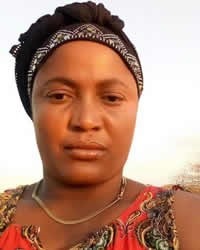Gogo in Tanzania

Photo Source:
Anonymous
|
Send Joshua Project a map of this people group.
|
| People Name: | Gogo |
| Country: | Tanzania |
| 10/40 Window: | No |
| Population: | 3,008,000 |
| World Population: | 3,008,000 |
| Primary Language: | Gogo |
| Primary Religion: | Christianity |
| Christian Adherents: | 79.00 % |
| Evangelicals: | 19.00 % |
| Scripture: | Complete Bible |
| Ministry Resources: | Yes |
| Jesus Film: | Yes |
| Audio Recordings: | Yes |
| People Cluster: | Bantu, Central-Tanzania |
| Affinity Bloc: | Sub-Saharan Peoples |
| Progress Level: |
|
Introduction / History
The Gogo people, also known as Wagogo, are a Bantu-speaking ethnic group primarily located in central Tanzania, especially in the Dodoma Region. Their language, Gogo, is closely related to Kaguru, though culturally distinct. The name "Gogo" was coined by Nyamwezi traders in the 19th century during caravan routes across their territory. Historically, the Gogo trace their origins to Nubia (present-day Sudan) and migrated through Unyamwezi and Uhehe before settling in Ugogo. Their society was traditionally decentralized, with clan affiliations being more important than broad political unity.
What Are Their Lives Like?
The Gogo live in a semi-arid region marked by erratic rainfall, frequent droughts, and periodic famines. Despite these challenges, they have adapted through cattle herding and drought-resistant agriculture, cultivating sorghum, millet, and maize. Cattle are central to their economy and social life, used for wealth exchange and spiritual offerings. Their material culture includes smithing, beadwork, music, and dance, and they maintain strong kinship networks. Traditional rituals, such as rainmaking ceremonies, are still practiced in some areas.
What Are Their Beliefs?
The Gogo are predominantly Christian. However, many still practice African Traditional Religions, especially in rural areas. Their spiritual worldview includes ritual leaders who oversee rainmaking, fertility rites, and protection against natural disasters.Christianity was introduced during the colonial era, with Roman Catholic missions establishing schools and churches in the early 20th century. The Gogo have a history of engaging with the Bible in culturally contextual ways, including choir songs and storytelling.
What Are Their Needs?
They need deeper discipleship and biblical literacy. Many Christians are nominal and have limited understanding of biblical teachings. Others are ready to spread Christ's fragrance, and they need evangelism and discipleship training.They need sustainable solutions to food insecurity. Frequent droughts and poor rainfall continue to threaten their agricultural livelihoods. They need improved access to education and healthcare. Rural Gogo communities often lack basic services and infrastructure.
Prayer Points
Pray for the wide distribution of the Bible in Gogo and the JESUS Film.Pray for spiritual revival and deeper commitment among Gogo Christians to take Christ's name to Muslim communities.Pray for rain and sustainable agricultural development to combat famine.Pray for missionaries and local leaders to disciple and train new believers.Pray for the preservation of Gogo cultural identity and language.